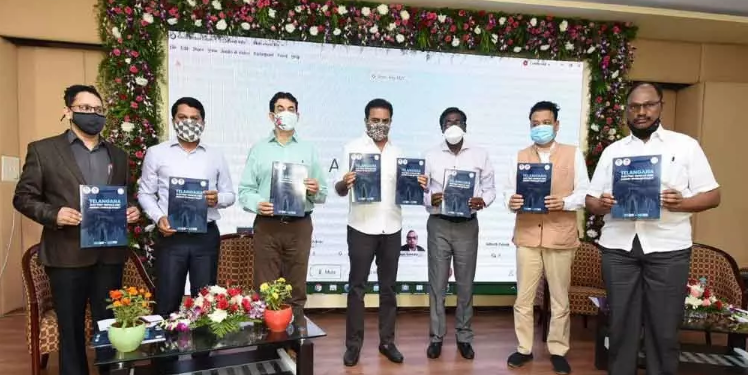Road tax exemption for the first batch of two-wheelers, autos, cars, etc.
For incentivizing usage of electric vehicles (EVs) in the State, the Telangana government is proposing to exempt the first batch of two lakh such two-wheelers, 20,000 three-seater autorickshaws, 5,000 commercial passenger vehicles such as cabs, and an equal number of private cars besides 500 buses from payment of road tax and registration fee.
A similar benefit will be provided to the first 10,000 light goods carriers, including goods carrying three-wheelers, and electric tractors.
The exemption will be applicable if the vehicles are purchased and registered within Telangana, said a government order on the Telangana Electric Vehicle & Energy Storage Policy 2020-2030.
Industries and IT Minister K.T.Rama Rao along with Transport Minister Puvvada Ajay Kumar is set to formally launch the policy on Friday at a programme, in which industry leaders are scheduled to participate.
Passed by the State Cabinet in August, the policy seeks to make Telangana a hub in the EV space through a combination of measures, including offering incentives for the manufacturing of EVs, energy storage systems, and related components. The incentives will include capital subsidies, State GST reimbursements, and power tariff subsidies.
With an eye on addressing the different facets of the EV ecosystem, the Policy said incentives will be provided for charging infrastructure. The government will facilitate the setting up an initial batch of fast charging stations in Hyderabad and other towns in a phased manner by State entities and private players. It also moots a special power tariff category for EV charging stations, by the Telangana State Electricity Regulatory Commission.
The GO said existing state self-employment schemes shall be extended to provide financial assistance for the purchase of EVs for commercial purposes. Ride-hailing services will be encouraged to operate electric 2, 3, and 4 wheelers through incentivization. Promoting the adoption of EVs at the institutional level, starting with government entities, encouraging State Transport Units to purchase electric buses, and provision of preferential parking slots with required charging infrastructure for EVs are among the aspects touched by GO.
The State government will facilitate in dovetailing with the Centre’s schemes and encourage stakeholders to avail benefits available under the latter schemes under the 10-year policy, one of whose objectives is to achieve a substantial reduction in the total cost of transportation for personal and commercial purposes, supported by world-class infrastructure.


















